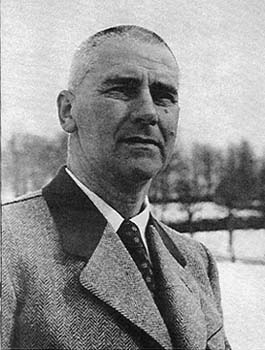Welcome to my latest AAR! The rest of this post will be devoted to boring background stuff, so I'll just go ahead and post the game settings before you go to sleep:
Platform: Doomsday 1.3
Scenario: Germany in The Road to War '36
Settings: Normal/Aggressive
Goal: WORLD DOMINATION. MUHAHAHHAHAHAHA.
Cheats: None
Modding Ability: None
Ability to take screenies: None
Gaminess: None
Allies: Only historical. All others shall be crushed through conquest.
Humor: Possible
Well, now for the boring bits:
I've had HOI2 for quite a while now, and I've finally worked up the nerve to start an AAR. I can't promise anything ont he scale of some of the truely great AARs out there, but still I hope to at least mildly entertain you. I've chosen Germany for simplicity and a challenge-I've never actually taken Germany to total world domination (only getting so far as Seelowe), but hopefully by the time '53 rolls around the big blue blob will be firmly under the heel.
The AAR will be presented mostly via sources from various counterfactual Nazi texts, with some narrative and maybe even a wee bit of humor thrown in for good measure. Pictures will be included, with hopefully at least two an update. The gameplay will most likely be spruced up and often altered a bit so as to enhance the narrative.
Disclaimer: Please note that I in no way agree with any part of the ideology of National Socialism and in no way think that the world this AAR will hopefully create would be a pleasent one to live in. This AAR will be written in the style of Nazi propaganda simply for historical flavoring and entertainment value. No offense is meant, and hopefully none is taken.
Now that that's finished, please enjoy
Platform: Doomsday 1.3
Scenario: Germany in The Road to War '36
Settings: Normal/Aggressive
Goal: WORLD DOMINATION. MUHAHAHHAHAHAHA.
Cheats: None
Modding Ability: None
Ability to take screenies: None
Gaminess: None
Allies: Only historical. All others shall be crushed through conquest.
Humor: Possible
Well, now for the boring bits:
I've had HOI2 for quite a while now, and I've finally worked up the nerve to start an AAR. I can't promise anything ont he scale of some of the truely great AARs out there, but still I hope to at least mildly entertain you. I've chosen Germany for simplicity and a challenge-I've never actually taken Germany to total world domination (only getting so far as Seelowe), but hopefully by the time '53 rolls around the big blue blob will be firmly under the heel.
The AAR will be presented mostly via sources from various counterfactual Nazi texts, with some narrative and maybe even a wee bit of humor thrown in for good measure. Pictures will be included, with hopefully at least two an update. The gameplay will most likely be spruced up and often altered a bit so as to enhance the narrative.
Disclaimer: Please note that I in no way agree with any part of the ideology of National Socialism and in no way think that the world this AAR will hopefully create would be a pleasent one to live in. This AAR will be written in the style of Nazi propaganda simply for historical flavoring and entertainment value. No offense is meant, and hopefully none is taken.
Now that that's finished, please enjoy
Vorwärts!: A History of the Third Reich










